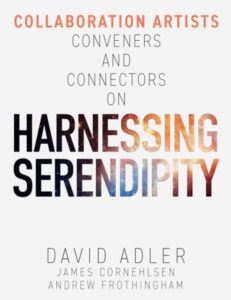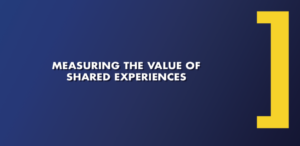
Guest post by Allison Cerra, author of Identity Shift
With the 2012 Presidential election looming, there’s no shortage of polls to help narrow the field of candidates. I find a recent one from Fox News to be particularly fascinating. Among other questions, Republican primary voters were asked which Republican presidential candidate is most likeable and which they would most trust with a nuclear weapon. While Newt Gingrich scored at the top of the heap in earning the trust vote, he scored only marginally well on the likeability scale. The topic was discussed on the network’s “Fox & Friends” morning show where analysts debated: Which is better – trust or likeability?
In the end, both analysts agreed that likeability is the more powerful weapon in a Presidential race. Look no further than to some of the most charismatic presidents in recent history for evidence of the same. Indeed, likeability has been shown to be a potent influencer in just about any life encounter – from friendships to job recruitment to sales. But, as the Fox poll shows, an issue as paramount to national security as nuclear war raises the importance of trustworthiness in the equation. And, while you and I may not spend our days contemplating the chances of a nuclear attack, raising our consciousness toward such a self-preservation issue may certainly tip the scales in how we view the question at hand.
Cast Your Identity
While we only get the chance to vote for President every four years, we cast thousands of votes each day in other ways. We vote with our time for leisure activities. We vote with our attention in the barrage of advertisements to which we are exposed. We certainly vote with our wallets on purchase decisions amidst a sea of competing options. Merchants are aware of these votes being cast each day. They vie to intercept us at the precise moment of truth with a targeted offer we simply can’t resist. And, in the hyper-connected world in which we increasingly dwell, our digital footprint reveals a treasure trove of information to advertisers eager to learn our likes, dislikes and behaviors – if only we felt comfortable enough exposing it.
While it certainly pales in comparison to the threat of nuclear attack, exposing our digital DNA gets at preservation at a different level – the preservation of the identity we seek to create and protect as our lives are increasingly connected in new ways. This leads us back to the same question: Does trust or likeability matter more when contemplating how and when to reveal one’s digital blueprint to others?
Alcatel-Lucent, a global provider of broadband networks, set out to answer this very question. We visited with respondents in 30 homes across the country, observing them for hours in their natural habitats going about their ordinary day. We followed up with a quantitative study to more than 5,000 consumers across the US from teens to mid-lifers to isolate psychometrics, behaviors and values. Our goal was ambitious: How do the devices and networks connecting us each day affect our view of ourselves and those serving us?
Who Are You?
To answer the question, we first had to understand how respondents view themselves in the networked world that keeps them connected. Through the research, we derived the 3P model of identity.
First, there’s presentation, which speaks to the image I attempt to reflect depending on my context. Before the days of devices connecting us in a 24×7 always-on world, life was simpler. Specifically, managing my image was simpler. My presentation at work may have been different from that at home, church, social gatherings or other venues. But, the networked community surrounding us demands a pervasive and constant reflection of who we are. And, I am no longer in control of how I appear, but anyone with an opportune cameraphone or texting fingers is capable of casting my image in the light they see fit.
Next, there’s protection, in which my worldview shapes what I choose to reveal or conceal about myself and loved ones. Protection-centric stories typically steal the headline of the day – whether it be in their scorn of companies that suffer security breaches or some other misstep in infringing customer privacy. Predictably, the public is fascinated with tales that expose how vulnerable we can be in the virtual world that surrounds us. Not all violations are created equal of course; an annoying spam message doesn’t carry the same consequence as a debilitating identity theft crime. In the protection realm, navigating the connected world requires an ability to discern innocuous from more harmful threats – despite not having our more primal, physical sensory capabilities to arm us in doing so.
Finally, preference is a psychological orientation toward targeted products, services and individuals. There is an abundance of choice in a hyper-connected world. Preference seekers long for the targeted offers or opportunities that appear just at precisely the moment they need them. Even better, these individuals crave personalized options that magically materialize even before a conscious need arises. In this space, the constellation of mouse clicks, channel changes and location updates presents a compelling view of who I actually am through my behaviors.
Who is Right?
The 3 Ps exist in each of us simultaneously. While some of us may more psychometrically align with one P in particular, we make conscious and unconscious tradeoffs between all three multiple times each day. Should I post that picture about myself on my social networking page? It depends on how strongly I believe it aligns with a particular presentation important for the unique audience. Should I reveal my location to others through my social networking updates? It depends on how protective I am of leaking such information compared to how strongly I prefer a targeted interaction or service benefitting from the same. Should I opt-in to receive targeted advertisements? It depends on how certain I am that such personalized information will be used to help me, not harm me.
And, here’s where many of us get it wrong. We assume that our dominant worldview is consistent with others around us. Protection-oriented individuals may be tempted to admonish preference seekers; indeed, they may seek to create regulations to protect others from unintended consequence. But, ask a preference seeker if such angst is warranted and he will likely tell you he is not concerned (we heard from several in our study echoing this point). We may mock others who seem too ‘narcissistic’ in their presentation for our tastes. Yet, those ‘narcissists’ have learned the importance of social image in the virtual world — the vast majority in our study agreed that having a good reputation online is as important as having one in the real world. The way I see the world and myself in it is different from those around me. And, at the end of the day, it is I who is ultimately accountable for my own personal outcomes. In fact, respondents in our study are inclined to agree: rather than seek “policing” from companies or government to keep them “safe” online, nearly two-thirds of consumers know they are ultimately responsible for their own destiny.
Who Gets the Vote?
This brings me back to the Fox poll that caught my attention. While online identity may not be in the same category as a presidential contest, the field is littered with potential land mines and gold mines for those seeking to grab one of the many votes we cast daily. And, while likeability may matter more when it comes to presidential picks, when it comes to exposing who we actually are to others around us, the spoils go to trusted providers in the identity race. Specifically, when asking respondents to evaluate brands based on how much they loved or hated them versus how much they trusted them with their personal information (similar to the Fox questions of presidential contenders), companies earning the trust vote had a much stronger correlation with a respondent’s higher willingness to pay for a particular service. Those earning the “love” vote derived virtually no correlation at all.
Like the Presidential bid, this race is just beginning to heat up. We will undeniably see more privacy missteps as the featured headlines of the day. We will experience missteps of our own as we seek to better understand who we are and who we want to be in the connected world. But, as in most contests, there will also be clear winners in this game. Those companies earning the coveted “trust” vote will unlock new services and value chains for a broader ecosystem of marketers, developers and technology companies to partake. And, consumers at the center of the debate will benefit from better management tools and clearer company policies to navigate in the networked-community age. In the end, trust evolves as the intangible currency and the most powerful vote cast in this race. That might just be enough to give players in this space (and presidential hopefuls like Newt) some hope.
About Allison Cerra
In addition to Identity Shift, Allison is the co-author of The Shift: The Evolving Market, Players and Business Models in a 2.0 World and has published several whitepapers and articles about emerging end user broadband trends and market potential for next-generation services.
Image Credit: Shutterstock





Allison, do you have a link to read the Alcatel-Lucent study cited in this post?
We documented the findings of the research, including verbatim comments from several of the subjects, in the book, Identity Shift: Where Identity Meets Technology in the Networked-Community Age. You can find out more about the book at http://www.theshiftonline.com.www.theshiftonline.com.
Thanks for sharing such an interesting
information. I think this is really a very nice post.
Hello there I am a grade 12 learner at a school in South Africa Gauteng. We received a task where we have to comment on your statement “social media is about sociology and psychology more than technology”. I decided that the most effective way of appoaching this task is to use the social media and communicate with you directly to clarify why you made that statement. Please will you help me?
Hello Nikke, your answer is here: https://www.briansolis.com/2007/08/social-media-is-about-sociology-not/ Cheers!
Nice post. I think I have to find more ways on how people are going to like me then, well of course I won’t expect all of them will but a large number of people liking you will be a helpful thing for a business.